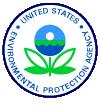Should Reference Material Providers, Including Nation Metrology Institutes, Be Accredited?
Oral Presentation
Prepared by S. Kassner
Neptune and Company, Inc., 1435 Garrison Street, Suiet 110, Lakewood, CO, 80215, United States
Contact Information: skassner@neptuneinc.org; 720-746-1803
ABSTRACT
The value of accreditation differs across fields and organizations. It can be focused on the value to the customer as a competent 3rd party validation of conformance to ISO Standards or to the Reference Material Provider (RMP) by the market advantage afforded by accreditation. For customers of RMPs, it can be very important that the reference materials they purchase come from accredited RMPs. There are several reasons, including terms of their own accreditations traceability for their tests and/or products understanding the uncertainty of their measurements and assurance that they are using a “true” second source for confirmation of measured properties. When there are terms of accreditation that require the use of certified reference materials, unaccredited RMPs can’t compete with their accredited counterparts and are henceforth marginalized regardless of the true value and benefit of their products. For all reference standards, whether certified or not, it is possible to make statements on traceability and uncertainty. Only accredited CRMs are required to include those statements. Finally, and perhaps most importantly, while national metrology institutes (NMIs) and other RMPs can provide CRMs of high quality and value, they can’t be used with confidence without accreditation and the information provided along with all CRMs. Without the accompanying information regarding traceability, a consumer of reference standards cannot be assured they are using a true second source.
Oral Presentation
Prepared by S. Kassner
Neptune and Company, Inc., 1435 Garrison Street, Suiet 110, Lakewood, CO, 80215, United States
Contact Information: skassner@neptuneinc.org; 720-746-1803
ABSTRACT
The value of accreditation differs across fields and organizations. It can be focused on the value to the customer as a competent 3rd party validation of conformance to ISO Standards or to the Reference Material Provider (RMP) by the market advantage afforded by accreditation. For customers of RMPs, it can be very important that the reference materials they purchase come from accredited RMPs. There are several reasons, including terms of their own accreditations traceability for their tests and/or products understanding the uncertainty of their measurements and assurance that they are using a “true” second source for confirmation of measured properties. When there are terms of accreditation that require the use of certified reference materials, unaccredited RMPs can’t compete with their accredited counterparts and are henceforth marginalized regardless of the true value and benefit of their products. For all reference standards, whether certified or not, it is possible to make statements on traceability and uncertainty. Only accredited CRMs are required to include those statements. Finally, and perhaps most importantly, while national metrology institutes (NMIs) and other RMPs can provide CRMs of high quality and value, they can’t be used with confidence without accreditation and the information provided along with all CRMs. Without the accompanying information regarding traceability, a consumer of reference standards cannot be assured they are using a true second source.


